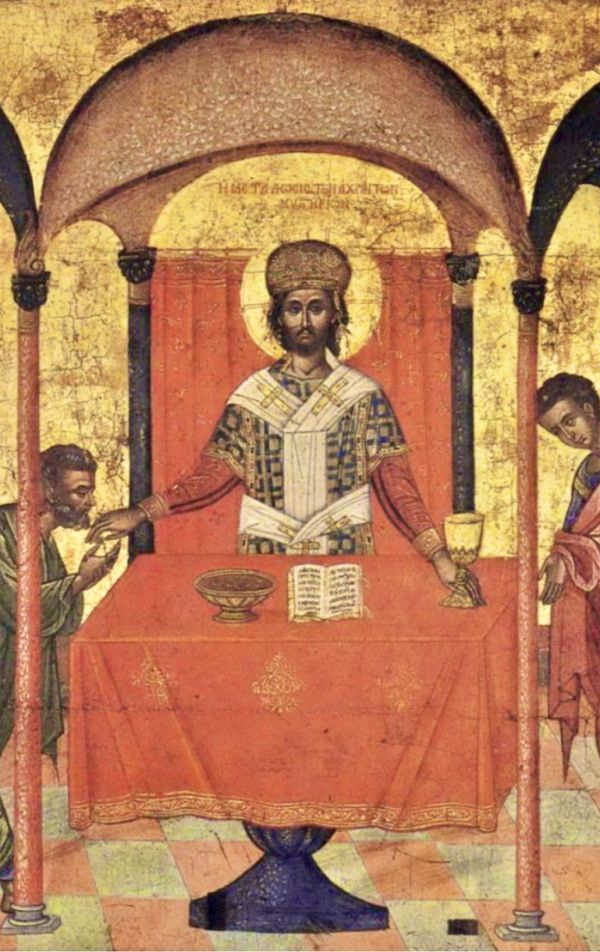(Jn 14:23-29)
The love of the Father unites us to Christ through a call that manifests itself wave upon wave. And on this path the Son reveals himself.
The Apostles, conditioned by the conventional mentality - all catwalks - question themselves about the attitude of Jesus, modest and not very inclined to the spectacle (v.22).
They do not accept a Messiah who doesn’t impose himself on everyone's attention, doesn’t surprise the world, doesn’t shout frenzied proclamations.
The Master prefers that in his Word we recognize an active correspondence with the desire for integral life that we carry within us (vv.23-24).
In ancient forensic culture, «Paraclete» (v.26) was called an eminent figure of the assembly - today we would say a sort of lawyer - who in silence placed himself next, so justifying the accused.
This attribute of the Spirit alludes to an intensity, intimate foundation and reciprocity of a silent Relationship that becomes Person.
The arch of the earthly ministry of the Lord ends; a Covenant is lit.
In this way, in the Gospels the Christ’s Peace-Shalôm is a nod of emancipation, assumed and reinterpreted in order to the imperative of the Apostolic Announcement.
It creates a new situation.
On the lips of Jesus, «Shalôm» - excellence and overcoming of the ancient blessings - assumes the features of its own messianic meaning: Gospels’ judgment and essential Proclamation (cf. Lk 10:5).
In the territories of the empire the Pax Romana had triumphalistic traits - it was synonymous with violence, competition, repression of rebels.
As armed truce, it guaranteed a prosperous economy, but secured in its social dimension only through inequalities, especially by a vast slaves’ base.
The Peace that Jesus introduces isn’t a wish (whatever) for normal improvements expected, but the transmission of his own Person.
This propensity and Friendship without price stimulate to a rearrangement, reconfiguration, complete reorganization of all life.
And it often breaks down our existence, in order to dispute its circumstance quietism.
In our language, we would perhaps talk about Happiness and new public order.
Being the secret desire of each, no difficulty can extinguish its promise and realization’s power (v.30).
Shalôm is the fullness of existence saved, "success" in our path of flowering through a thousand enterprises.
Shalôm is perfection and complete joy, fulfillment of desires.
Victory of God-and-people’s Alliance. Harmony and endless communion between the innate impulse of our particular essence and the fulfilment of hopes.
Success of the Covenant between soul impulse and evolutionary achievements experienced in real life.
Shalôm - the full realization of humanity that finds itself - indicates vital and complete totality of every aspiration.
Qualities of new relationships that flow from it: the supreme good of an in-act Presence, entrusted to us.
[6th Easter Sunday (year C), May 25, 2025]












